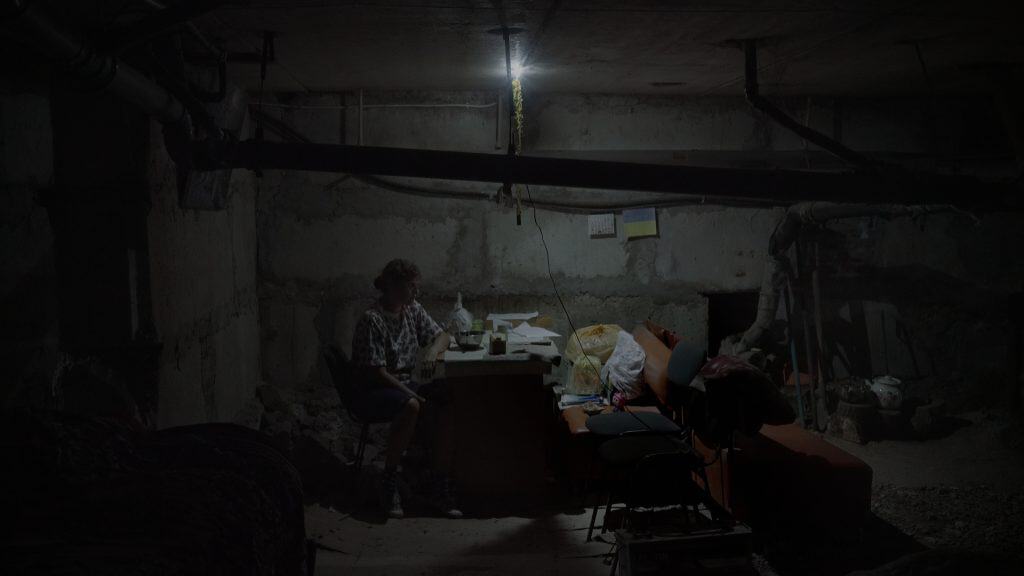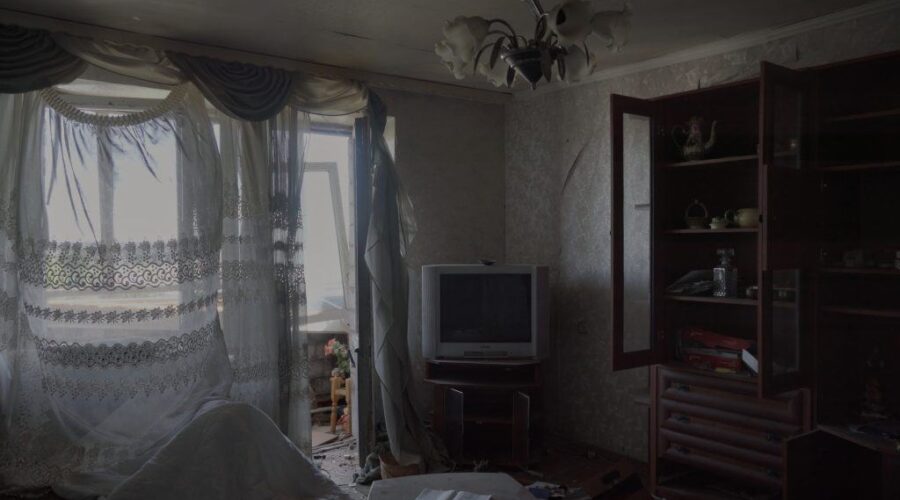“A Russian wouldn’t be a Russian if they didn’t steal something!” an anonymous woman wryly exclaims with a hint of pride in Oksana Karpovych’s Berlinale-premiering Intercepted, a probing journey into the imperialist mindset through a most unusual route.
The film’s title is a nod to the trove of phone conversations, between Russian soldiers fighting and dying (and pillaging and looting) on the ground in Ukraine and the men’s often supportive (in denial?) families back home, that were intercepted by the Ukrainian Secret Service in 2022.
This shockingly candid private audio forms the basis of the Ukrainian-Canadian director’s feature-length debut, alongside the doc’s many eerie images – drive-by pans of devastated cities and tableaus of ransacked rooms; but also of folks defiantly reoccupying and rebuilding, coming home to a haunting, post-apocalyptic stillness that makes absolutely no sense at all.
Indeed, with a horror film aesthetic – including a creepy synth soundtrack and shots captured from the “hidden monster” perspective through the front windshield of a slow-moving car – we’re taken on a wild ride that juxtaposes the war-torn country of Ukraine with the war-torn psyche of the Russian invaders being eavesdropped on.
A conscripted dad light-heartedly mentions that his child wrote him a letter – part of a “humanitarian aid” collection at her school – urging him to “kill all Ukrainians and come home.”
“Even civilians don’t make me feel sorry,” another fighter breezily declares.
The callousness and downright jokiness on display is unnerving – and perhaps further proof of the banality of evil. Or it may be a coping mechanism, the only way to keep from losing one’s mind.

And yet there are also intercepts from those who just aren’t buying the Putin propaganda line. “This is the choice we made by simply staying silent,” a woman yells at a soldier, noting that he and all their fellow Russians chose “destruction.”
A guy stresses that they are fighting for “the cause.” To which another man exasperatedly responds, “What fucking cause?”
In fact, as the soldiers continue to brag about their cold-hearted murderous exploits, the empty bravado increasingly begins to sound like a nihilistic confession – an acknowledgment that they’ve destroyed their own souls as well.
But there’s also a surprising amount of sympathy for the devil on the part of the director who is able to rise above the madness; as Karpovych chooses to front-load her evocative doc with an assortment of “kill the Nazis” braggadocio only to end with intercepts like that of the soldier delivering his last wish: that his young son never be conscripted.
Then again, the Kyiv-born filmmaker made that choice to retain her human dignity, even as the Russians decided to try to wipe her country from the map.

